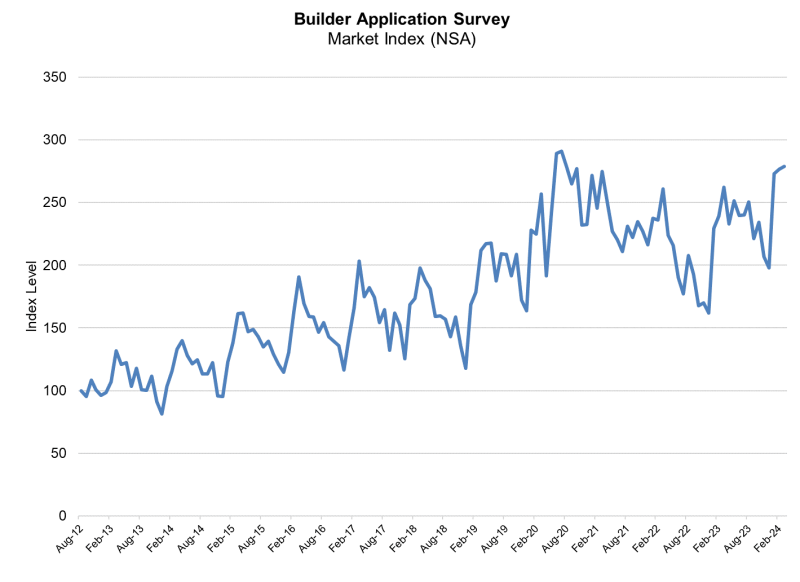Advertisement
FHA Insider: FHA SWAT Teams--Don’t be in the line of fire!

On April 2, 2009, the Federal Housing Administration (FHA) issued Mortgagee Letter 09-12, which deals with the importance of lenders and brokers having good credit policies and quality control plans in place. This letter didn’t get much press, so I’m bringing it to light to encourage companies to be proactive and have systems in place in the event you are ever audited. As a broker or lender, you want to make sure your office policies are such that FHA doesn’t show up at your door (and if they do, that your doors are still open when they leave!). If you are a direct endorsement lender (DE lender) and are educated and well-versed in FHA, you know what a wonderful product it is, and you know the autonomy you have in closing these loans. You also know the benefit to both the loan officer and the consumer, so you want to be sure the SWAT Team doesn’t have reason to be looking for you!
It seems that with every financial crisis, once the dust begins to settle and the most pressing issues are dealt with, what follows is a period of implementing new systems and/or enforcing systems already in place. These are designed to prevent the crisis from repeating itself. Unfortunately, however, it would seem that Bertrand Russell was most likely right on when he observed: “The one thing men learn from history is that men do not learn from history.”
So, now we find ourselves in yet another cycle of financial crisis. We are at the point in the cycle when the officers of FHA have raised their heads to hopefully prevent FHA from going the fate of the big banks. To better understand what caused the mortgage collapse, and in order to present a more educated understanding to your clients, I suggest listening to Barry Habib at www.mortgagesuccesssource.com/go/markmarket. Listen and learn as Barry explains the accounting procedure called “Mark to Market,” which was probably the primary contributing factor responsible for the most recent mortgage collapse.
FHA states in Mortgagee Letter 09-12 that “we must make every effort to eliminate improperly originated loans, underwritten and/or serviced loans, or related fraudulent activities.” The letter continues on to say that “HUD must hold mortgagees accountable for their lending practices in order to protect the public trust and the FHA Insurance Fund.”
And then comes the topic of this article: “ … recently, FHA reactivated its SWAT Team to conduct single-focus on-site reviews of lenders whose originations are exhibiting signs of distress.” That’s right, folks, FHA has resurrected their SWAT division. I have been involved with the FHA for about 14 years, and I’ll admit I was never aware of this division (as you can see, apparently it was in ‘hibernation mode!’).
When I read the above quote, my first thought was visions of Officer T.J. McCabe (the sniper from the old 1970s TV series, S.W.A.T.) scoping the offices with high FHA default rates, ready to take out the loan officers whose names appear on the 1003s of defaulted FHA loans as they blithely leave their offices for lunch. It became clear that’s not what SWAT refers to in this context. In fact, the FHA SWAT stands for Special Work Assessment Teams. Instead of carrying rifles and grappling hooks, they now carry brief cases and notebooks. The role of this division of FHA is to “single out” those lenders who have high FHA default rates and uncover abuses of the FHA program.
Before I continue, I’ll share a brief story with you—and keep in mind, this happened before the FHA SWAT Team was resurrected! A few years ago, I worked hard to get into a real estate office as their “go to” FHA lender. FHA was the only loan for the clients they would refer, so it was a perfect office for me. They allowed me the opportunity to do an FHA presentation for them, showing them that I had a thorough understanding of FHA. They tested me out with a few tough deals which I was able to get through. Having proved myself, I essentially had an office in theirs, and thereby, developed good rapport with all of the agents. After about a year, along came another lender to compete with me. The difference is, I was doing loans that were in compliance with FHA guidelines, and my competition worked for an unscrupulous lender that shelved their own paper and would do loans that bordered on fraud. I couldn’t (nor would I want to) compete with that, and would not compromise my integrity to do these loans, and lost that relationship.
Much as it hurt me financially at the time, at least I could look at myself in the mirror and I didn’t need to keep looking over my shoulder, because eventually, unscrupulous business practices have a way of catching up with you (witness the past year plus). Sure enough, it took about two years and they were gone—shut down by the clandestine FHA SWAT Team. Once the loans started to default, FHA started to take a closer look by way of an audit and the rest is history. I mention this because many originators view FHA as the new sub-prime and, in order to close shaky deals, take advantage of the fact that FHA has no hand in the loan process. If you take this path, and I would certainly hope that no loan officer would, know that it will eventually catch up with you. I have seen many companies fail in my hometown marketplace of the metro Detroit area due to the origination of bad FHA loans that don’t meet FHA guides. As originators struggle to remain in business, there is much temptation to close the loan just because you can. If you cannot handle the stress and still maintain your integrity that of our already weakened industry, it may be time to find another profession.
In a previous article, I discussed the importance of setting clients up for “success in their home” by offering good financing. My motto for years has been: “Good People. Good Homes. Good Loans.” A good transaction starts with honest and ethical parties to the transaction, and what results is people buying good homes (after proper disclosure and having been properly inspected), and with good loans (with proper disclosure and education from the lender). Proper disclosure and accepting true documentation is the first step to preventing the FHA SWAT Team from taking you out!
Since we’re talking about proper disclosure, I’d like to mention some amazing loan presentation tools for loan originations available online at www.MortgageCoach.com. These tools allow you to not only to accurately disclose the type of financing you’re offering your clients, but it does so in a very appealing way. It takes your service as a loan officer to a whole new level, which can only serve to build trust between you and your client, while at the same time, distinguishing you from the competition. Two of these “tools of separation” (TOS) are: The Total Cost Analysis (TCA) and the Rent vs. Own (RVO) analyzer. The TCA details the net cost of each loan over time, allowing you to financially compare in detail up to four loan programs. The RVO analyzer allows you show the cost savings and tax advantages of owning rather than renting. Since we are in a buyers’ market and FHA is often the only choice of loans, I find the RVO presentation to be outstanding for new buyers who are, without question, getting the deals of the decade.
How you present information to your prospective clients is crucial to developing a long-term relationship with that customer. The tools mentioned above are two impressive ways to help you present and articulate important information in a clear and lucid manner. Providing important and accurate information at application is critical because:
1. It keeps you educated on how the mortgage impacts your clients’ wealth; and
2. It removes ambiguity, setting up clear expectations for the transactions.
If the borrower knows what to expect, then there is a greater chance for success with that mortgage. Tragically, one significant reason many borrowers got into sub-prime adjustable-rate mortgages (which are actually doing well right now: The six-month London Interbank Offered Rate (LIBOR) was at about 1.58 at the writing of this article) is because they didn’t understand the loan. The sad fact is, many loan officers didn’t understand them either and that’s just not responsible business practice. Being well-educated in your field, and having accurate and effective communication with you clients so that they know what’s going on and what to expect is of critical importance.
In closing, I’d like to list the five things the FHA urges you to review with respect to your company’s policies and procedures, to make sure you are prepared and prevent the SWAT Team from interrupting your business:
1. Implement and maintain a comprehensive quality control plan.
It is critical that you work with a CPA who understands FHA guidelines and policies to assure that you are properly protected. George Daugharty is a Virgina-based CPA who handles clients in the county’s southeast region, specializing in FHA audits and approvals for his clients. He spends too much of his time cleaning up messes that previous CPAs (CPAs who were not well-versed in FHA) made for his clients. Get an expert on your quality control team!
2. Be sure to monitor your loans and be sure to review loans that go into default.
In a previous article, I elaborated about the “3Ds of Foreclosure: Denial, Disgust and Destruction.” If you monitor your clients’ loan payment history, you can be in a perfect position if, down the line, they run into trouble. For example, I once had a client go into default when she experienced an unexpected financial crisis. I tried contacting her, but she wouldn’t return my calls, so I went to the home to see if I could speak with her. She wasn’t home at the time, so I left her a note telling her that she should take action and not panic. I told her to contact an agent and get the house sold. Sometime later, she followed up with me to let me know that the house sold, thanking me. This prevented the need to make a claim to FHA for a foreclosure.
3. Develop company advertising policies to make sure you do not engage in false or misrepresentative advertising.
Know the required elements of an advertisement and the trigger terms that cause you to require further disclosure.
4. This should be elementary, but you must be able to fully document the stability and amount of borrowers’ income.
This is where lenders can take advantage of FHA and close loans that do not fully meet income guides. Historically, many lenders have gotten away with pushing loans through and as long as the payments are made, things were cool. FHA aspires to increase their Post Endorsement Technical Reviews (PETR) to weed out the shady lenders.
5. Set up protocol to assure that you are not charging excessive and unallowable fees to borrowers.
I am continually amazed at how many loan officers do not know the FHA allowable fees, and how to properly disclose these on a Good Faith Estimate (GFE) to produce an accurate Truth-in-Lending (TIL).
If you’re wondering about the PETRs, I mentioned in item four above and would like to know what’s FHA looks for when they review a file, then Google (yes, I would call it a verb now!) “HUD Form 54118” to give you an idea of what the FHA looks for. This will help you improve the documentation of your files, and keep you out of the line of fire of the FHA SWAT Team.
Go FHA!
Jeff Mifsud founded Southfield, Mich.-based Mortgage Seminars LLC in 2004, has been an FHA originator for 12 years, is a contributor to LoanToolbox.com and is a former FHA underwriter. Jeff may be reached at (877) 342-9100.
About the author





